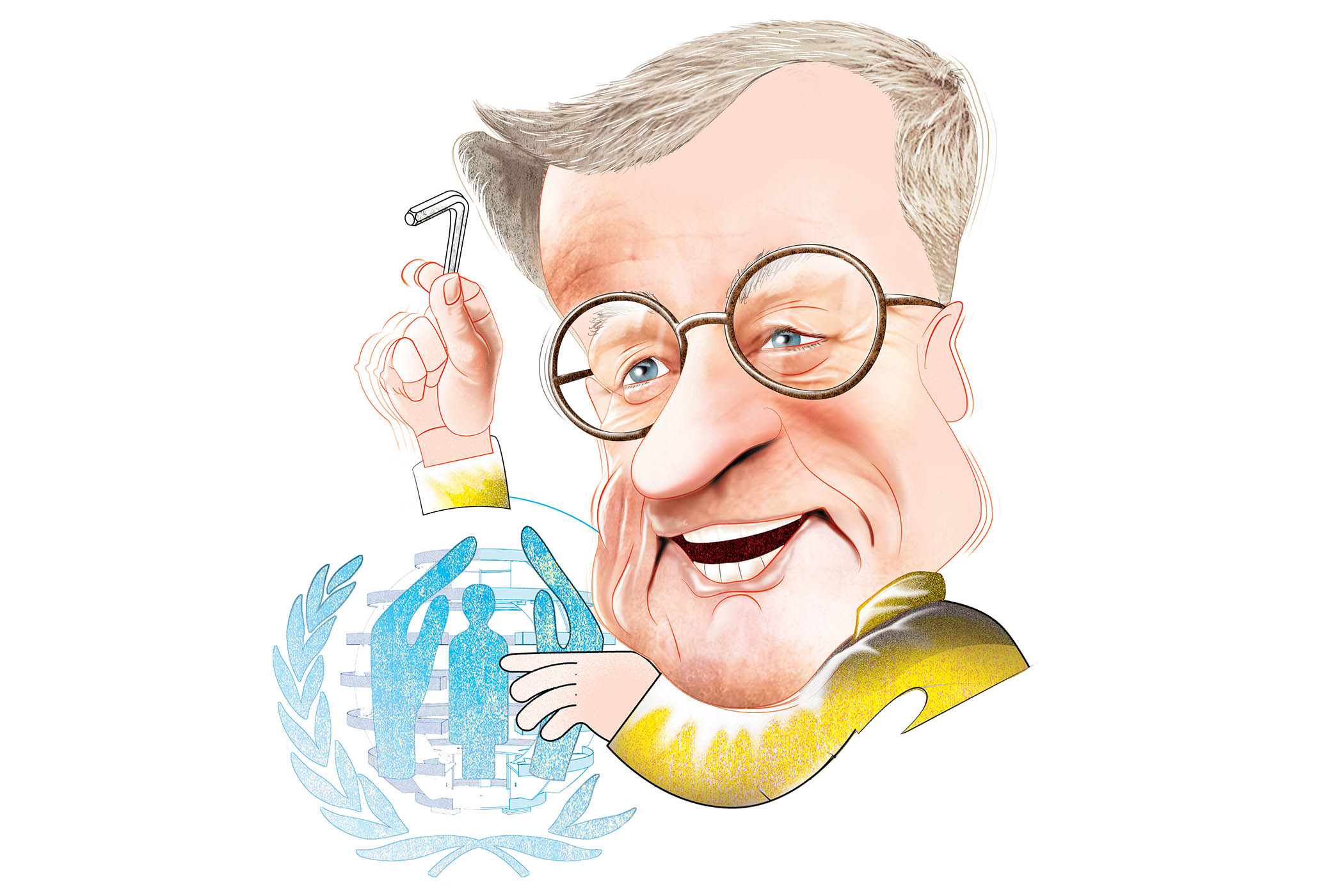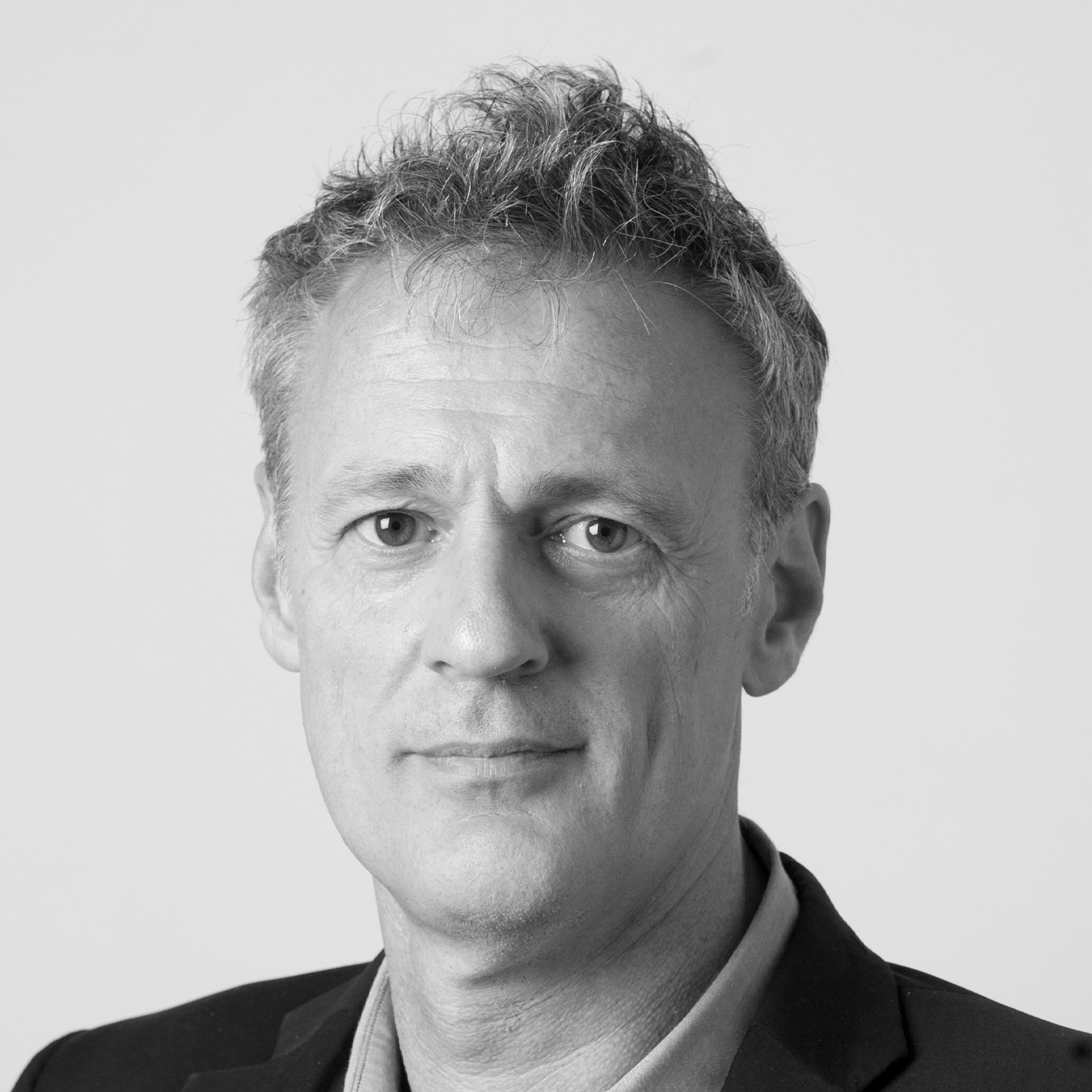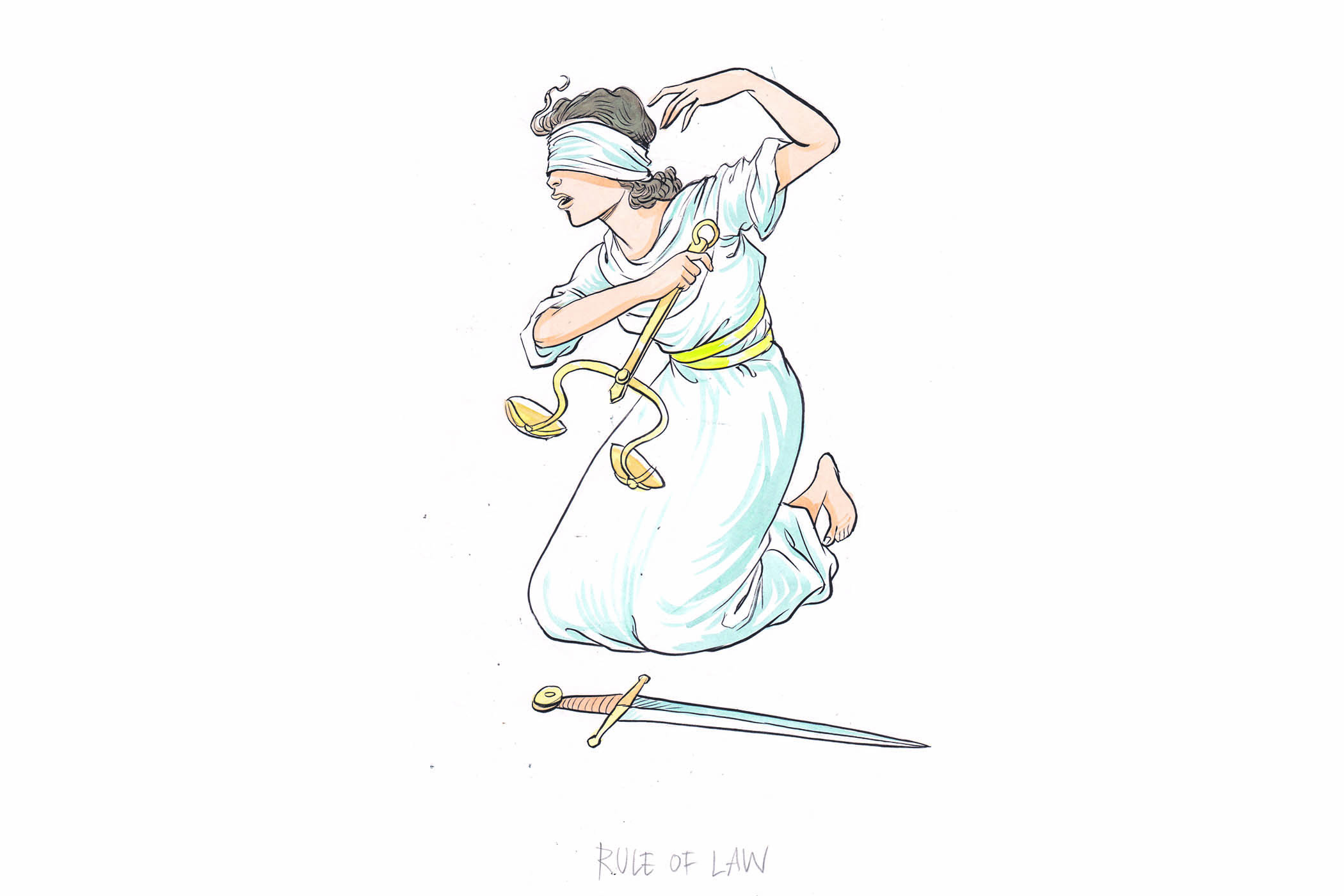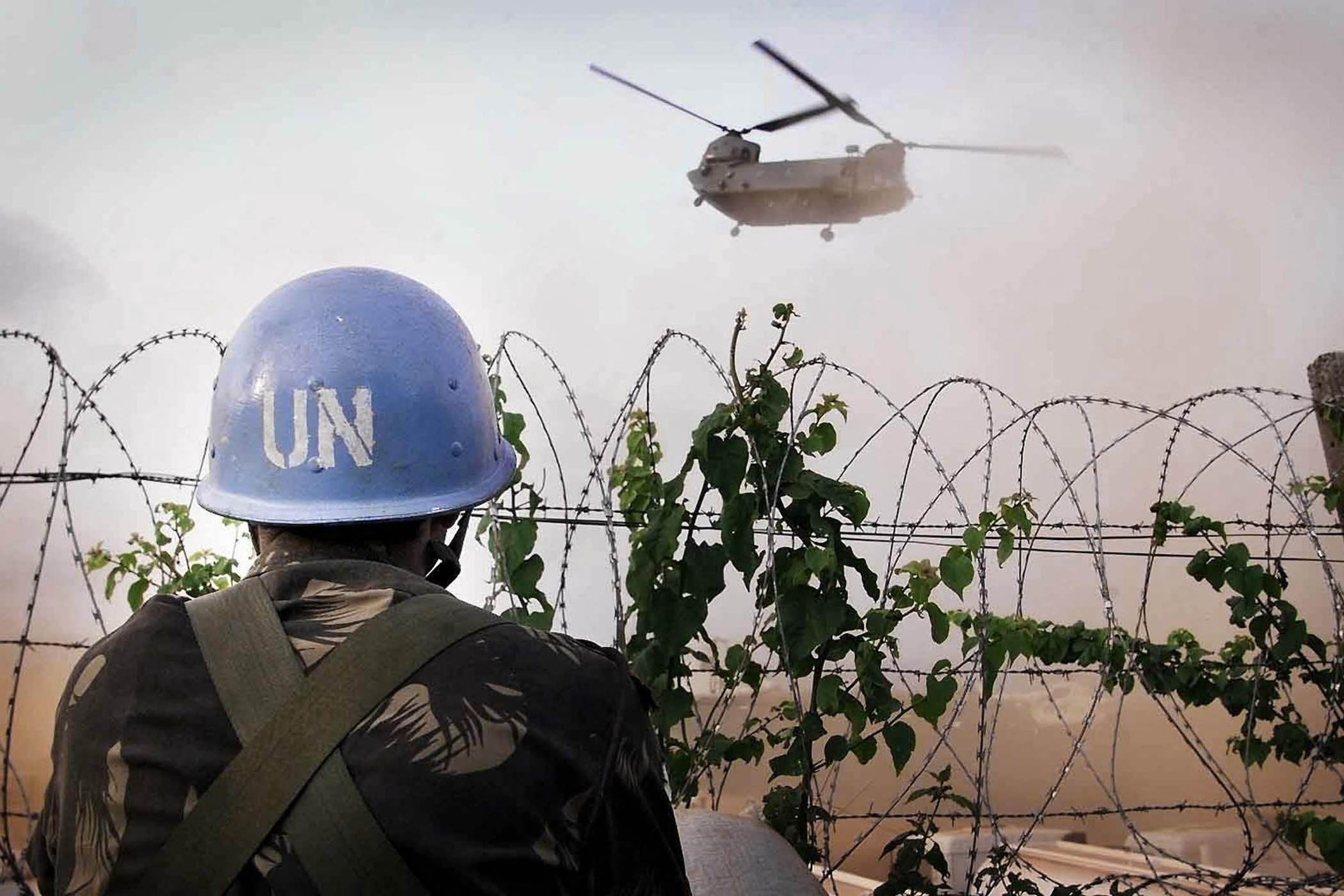Hidden away on YouTube is a song called Rain on Java by an amateur Swedish band named Lord Beaverbrook. It has 15 views and might pass as the very definition of musical obscurity were it not for one inconspicuous detail.
The singer, songwriter and guitarist of the band is Jesper Brodin, the outgoing CEO of the Ingka Group — which runs Ikea, the world’s largest furniture company.
In August, Brodin, a charismatic 56-year-old with a disarmingly relaxed manner, announced his departure from the business after 30 years, the last eight as CEO. He said at the time that he didn’t have any plans. “But if the phone doesn’t ring,” he added, “I’ll probably have to resume my old hard rock career.”
Music fans can breathe easy. The phone, it seems, did ring. Earlier this month, all pretensions to guitar heroism were put on hold when the Swedish government nominated Brodin to become the next United Nations high commissioner for refugees (UNHCR).
Exactly what a man who has spent most of his career overseeing the production and sale of flat-packed wardrobes and sofabeds has to do with the plight of the world’s displaced may not be immediately obvious. And indeed there are more favoured candidates, such as Switzerland’s former migration minister Christine Schraner Burgener, who have far greater expertise in the field of refugee work.
But as Sweden’s international development and trade minister Benjamin Dousa put it: “The UN system would be strengthened by a person with business experience, especially given the major challenges now facing the UN. That’s why someone who knows how to keep hold of the purse strings and deliver efficient operations is needed.”
Efficiency and the UN have never made obvious bedfellows. There are a couple of factors, however, that strengthen Brodin’s case. One is that the UNHCR, as Dousa noted, is suffering from severe funding cuts, with its budget expected to be 20% down next year. The other is that Sweden is the UNHCR’s donor of unearmarked support.
In any case, Brodin is much more than a bottom-line businessman. He has made his mark as CEO by combining an increased investment in sustainability with a rise in profits, and has taken an active role in global governance. Among his portfolio of extracurricular commitments are his roles as vice chair of the board of UN Global Compact and co-chair of the World Economic Forum’s Alliance of CEO Climate Leaders.
Related articles:
María Mendiluce is CEO of the We Mean Business Coalition, which seeks to help business reduce carbon emissions. She has worked closely with Brodin, who has been supportive of the coalition, and she believes he is just what the UN is crying out for. “The UN bodies do need to modernise and be run more like business. When you run a company, you take decisions. When you run these organisations, you have to consult with hundreds of countries, and that does not work,” she says, adding that Brodin must be allowed flexibility.
But even if he were appointed, it’s unlikely that the UN would suddenly turn its back on its multinational consultation process to speed up decision-making. So how would he handle the frustratingly slow pace and difficulty in achieving results?
Newsletters
Choose the newsletters you want to receive
View more
For information about how The Observer protects your data, read our Privacy Policy
The UN bodies do need to modernise and be run more like business
The UN bodies do need to modernise and be run more like business
María Mendilue, CEO of We Mean Business Coalition
“He will just roll up his sleeves and get on with it,” Mendiluce says.
She says that Brodin’s great virtue is his ability to talk to people on their level with empathy and humility. That may work in person, but not when translated into corporate dictums for his LinkedIn profile. Lines such as “it’s only by doing, you change the world” and “find the right question and the answer will present itself” sound like a Ted talker writing fortune cookie wisdom. With 120 million forcibly displaced people, the refugee crisis poses endless questions but there are few viable answers.
Sunder Katwala, director of the British Future thinktank, says the UNHCR is a pragmatic agency that seeks to work with governments to ensure compliance with the asylum system, but is aware of a growing pushback in western countries. “Next year is the 75th anniversary of the refugee convention, and the occasion will be used by critics to say that now the world is very different, [that] ‘We can’t do that any more’,” says Katwala.
One country whose attitude towards asylum has changed in recent years is Sweden, which has the highest number of refugees per capita in Europe. Brodin has been based in Ingka’s headquarters in the Netherlands, but has a home in Helsingborg, near Malmö, and will be aware of growing concerns in Sweden about criminal networks within migrant communities.
“He will need to acknowledge the tensions and to communicate how they can be resolved,” says Mendiluce. “But also convey a deeper understanding of the contributions that refugees and migrants bring to countries.”
Born in Gothenburg, Brodin joined Ikea with a master’s degree in industrial engineering from Chalmers University of Technology, located in his native city. He started out as a purchase manager for the company in Pakistan. “They say if you have never negotiated in Pakistan, you have not really lived,” he once observed. He was soon promoted to regional manager of south-east Asia, but it was becoming assistant to the company founder Ingvar Kamprad that turbocharged his career.
Kamprad, who set up Ikea when he was just 17, was his mentor, a billionaire who maintained a puritanical resistance to spending money unnecessarily. “His spirit is still here,” Brodin said recently. “We still fly economy class. He would haunt me if I flew business class.”
At the heart of Ikea, says Brodin, is Kamprad’s “values-based vision”, which prioritises a positive outlook on human endeavour. “We are chronically optimistic,” is the way Brodin put it.
But Kamprad was a member of the pro-fascist New Swedish Movement in the early days of Ikea, an affiliation that he would later call the “greatest mistake of my life”, but one which, according to a biographer, lasted much longer than he liked to admit.
Although the company has worked hard on its bright democratic image, these historic shadows continue to hang over Swedish politics and indeed the wider west’s relationship with the refugee-producing areas of the world.
Should Brodin upset the form book and be named high commissioner, he would have to deal with longstanding grievances on one side and growing resentment on the other, and plot a path between them with much less money and fewer resources to work with.
At Ikea, Brodin overcame market uncertainties by buying up the supply chain. No such options are available in the world of humanitarianism. It’s all about solving problems that you didn’t create.
“One of the things Jesper does well is that he can communicate complex things in a simple way,” says Mendiluce.
It’s a skill that, if he lands the post, he will need to draw on deeply. But to sound a note of Ikea-like optimism, his chances of making a success of it are rather better than Lord Beaverbrook’s.
Illustration by Andy Bunday



